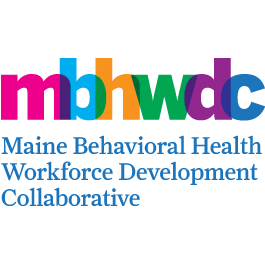Description
April 7 & 8, 2025 | 9:00am-12:00pm
Virtual via Zoom
Description:
Developing a peer support program that fosters relational safety, is responsive to team needs, is responsive to unhealthy and unhelpful dynamics, and provides quality support to navigating challenges team members experience is a significant concern in our resource-scarce community. This session will focus on key elements of developing team cultures that are healthy and responsive, which includes mechanisms to capture team experience, identify needs and changes, and understanding power dynamics.
Check out the other sessions in this series here: Session 1: Peer Support Supervision | Session 2: Team Culture in Peer Support Programs | Session 3: Grant Writing in Peer Support | Session 4: Introduction to Peer Support Budgeting | Session 5: Advanced Peer Support Budgeting | Technical Assistance
Objectives:
• Have a foundational understanding of your role as a leader in establishing healthy, supportive team cultures
• Gain skills in developing team values and group agreements
• Gain knowledge in managing your own stuff in navigating challenging team dynamics
• Gain knowledge and skills through practicing team conversations and setting the stage for challenging team conversations
Presenter:
 Randy Morrison (he/him) is a person who personally understands the challenges of navigating substance use and mental health concerns. He is a Certified Intentional Peer Support (IPS) Specialist, IPS Trainer, and CCAR Recovery Coach trainer; and has a master’s in public health and a master’s in policy, planning and management. Randy spent over seven years leading the growth and implementation of peer support programs across Maine’s largest healthcare system before becoming a full-time trainer and consultant. During his time as a senior leader, he grew a peer support team of 3 peer supporters to over 65, the largest in Maine. The programs spanned substance use peer support, mental health peer support, youth peer support, and family/parent peer support. Those positions worked in a variety of settings as well, including emergency departments, primary care, behavioral health clinics, youth early intervention programs, case management programs, and four peer support centers. Randy was a co-author on a manual for integrating peer support into multidisciplinary and clinical settings. Randy is passionate about peer support fidelity and creating systems that center the people utilizing them.
Randy Morrison (he/him) is a person who personally understands the challenges of navigating substance use and mental health concerns. He is a Certified Intentional Peer Support (IPS) Specialist, IPS Trainer, and CCAR Recovery Coach trainer; and has a master’s in public health and a master’s in policy, planning and management. Randy spent over seven years leading the growth and implementation of peer support programs across Maine’s largest healthcare system before becoming a full-time trainer and consultant. During his time as a senior leader, he grew a peer support team of 3 peer supporters to over 65, the largest in Maine. The programs spanned substance use peer support, mental health peer support, youth peer support, and family/parent peer support. Those positions worked in a variety of settings as well, including emergency departments, primary care, behavioral health clinics, youth early intervention programs, case management programs, and four peer support centers. Randy was a co-author on a manual for integrating peer support into multidisciplinary and clinical settings. Randy is passionate about peer support fidelity and creating systems that center the people utilizing them.
Contact hours:
6 contact hours for social workers, licensed clinical professional counselors, and behavioral health professionals
6 category I contact hours for psychologists. CCSME is a pre-approved sponsor and provider of Professional Education Activities for Psychologists.
6 contact hours for Alcohol and Drug Counselors pending approval from the Maine Board of Alcohol and Drug Counselors.
6 contact hours for CHES. CCSME is a designated provider of continuing education contact hours (CECH) in health education by the National Commission for Health Education Credentialing, Inc.





